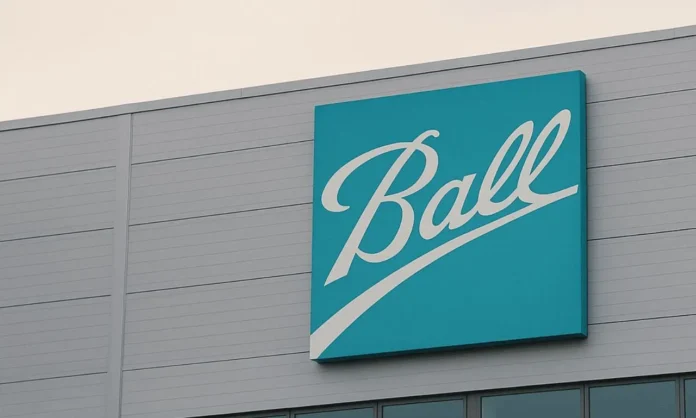Ball Corporation has begun a $250 million accelerated share repurchase (ASR), signaling confidence in its post-aerospace transformation and a renewed focus on capital discipline.
The buyback, announced June 16 and arranged with Crédit Agricole CIB, will reduce Ball’s outstanding shares significantly. Final numbers will depend on the volume-weighted average trading price during the agreement period, a standard structure for ASR deals.
While share repurchases are common among mature public companies, Ball’s timing is strategic. The move follows its full exit from the aerospace sector and reflects a broader capital plan to return at least $1.5 billion to shareholders by the end of 2025.
“This share buyback, which is part of our previously announced planned purchases for the year, enables us to most efficiently deliver on our goal of returning at least $1.5 billion to shareholders by year-end,” said CEO Daniel W. Fisher.
A New Era: Leaner, Focused, Liquid
Ball’s decision to focus solely on aluminum packaging has redefined its market position. After divesting its aerospace division in 2024, the company is now a streamlined operation, targeting efficiency, margin stability, and packaging innovation.
Its 2024 revenue — $11.8 billion, excluding aerospace — places it among the top three global players in metal packaging. The ASR move is designed to signal financial strength, simplify the balance sheet, and support earnings per share.
More importantly, it sets the tone for how Ball plans to operate moving forward: fewer distractions, better use of capital, and tighter alignment with packaging market demand.
Why This Matters for Supermarket Buyers
Ball isn’t just repurchasing stock. It’s building long-term resilience in a packaging sector under pressure.
For supermarket buyers, especially in private label procurement, this matters. Ball’s packaging portfolio — which spans beverage cans, personal care containers, and household products — touches nearly every aisle.
A stronger, focused Ball means:
-
More stable pricing for aluminum formats
-
Continued investment in closed-loop recyclability
-
Stronger support for ESG-aligned packaging pilots
-
Better R&D backing for lightweight and low-emission packaging
Buyers working on product reformulation, carbon footprint reduction, or recyclable private label packaging will benefit from a supplier that’s both financially stable and strategically aligned.
Industry Reaction: A Vote of Confidence
Analysts see Ball’s ASR as a confident play, especially amid macroeconomic uncertainty.
“A $250 million ASR isn’t just about the market — it’s a message to partners and shareholders that Ball is operating from a position of strength,” said Caroline Mertz, packaging industry specialist at Whitestone Partners.
“They’ve simplified the business, and now they’re showing they can deliver performance with focus.”
The move may also raise expectations among competitors, many of whom are navigating margin pressures, plant closures, or restructuring costs tied to sustainability compliance.
Competitor Snapshot: Ball vs. The Rest
| Company | FY2024 Revenue | Share Buyback 2025 | Business Focus |
|---|---|---|---|
| Ball Corporation | $11.8 billion | $250m ASR, $1.5bn planned | Aluminum-only packaging |
| Crown Holdings | $12.9 billion | ~$500m ongoing | Global metal packaging |
| Ardagh Group | €7.7 billion (est.) | None disclosed | Glass + metal packaging |
Ball’s competitors are watching. While Crown has maintained a steady repurchase program, and Ardagh focuses more on operational investment, Ball stands out for clarity: it is investing in its shareholders and its packaging platform—nothing else.
Balancing Capital and Climate
Some investors question whether buybacks conflict with sustainability investment. Should that $250 million have gone to Scope 3 emission reductions or alternative materials R&D?
Ball’s approach is: do both.
The company has committed to Science Based Targets, expanded its use of ASI-certified aluminum, and invested in low-emission production lines in key regions. It also works closely with supermarket chains to co-develop recyclable formats and regional sourcing models.
This buyback doesn’t replace those efforts — it runs in parallel. Ball is betting that lean capital structure and high ESG performance can co-exist.
What It Means for Retail Strategy
Retailers across Europe and North America are under pressure to cut packaging emissions, meet plastic reduction targets, and increase the recyclability of private label lines.
Ball’s financial discipline directly supports those goals.
Supermarket buyers should see this as a stability signal:
-
Ball isn’t spread thin.
-
It isn’t chasing growth in adjacent sectors.
-
It’s doubling down on the infrastructure that delivers for supermarkets.
That means better supply security, more efficient format development, and closer partnerships on lifecycle impact reporting.
Shareholder Value and Long-Term Supply
Ball’s packaging-first identity means it’s now more accountable to one customer base: FMCG and supermarket brands. With demand for sustainable cans and bottles continuing across beverage, homecare, and personal care, Ball’s streamlined model allows it to focus squarely on serving that growth.
As buyers rethink their supplier relationships post-pandemic and amid regulatory change, this clarity matters. Ball’s ASR is part of that story — a company saying:
“We know who we are. And we’re backing it up financially.”
Final Take
Ball’s $250 million share buyback isn’t just about the stock price. It’s a vote of confidence in the company’s post-aerospace identity, its ESG leadership, and its ability to deliver real value—to investors, retailers, and supply chain partners alike.
As packaging markets shift, Ball is making one thing clear: it’s staying light, staying focused, and staying in the lead.



